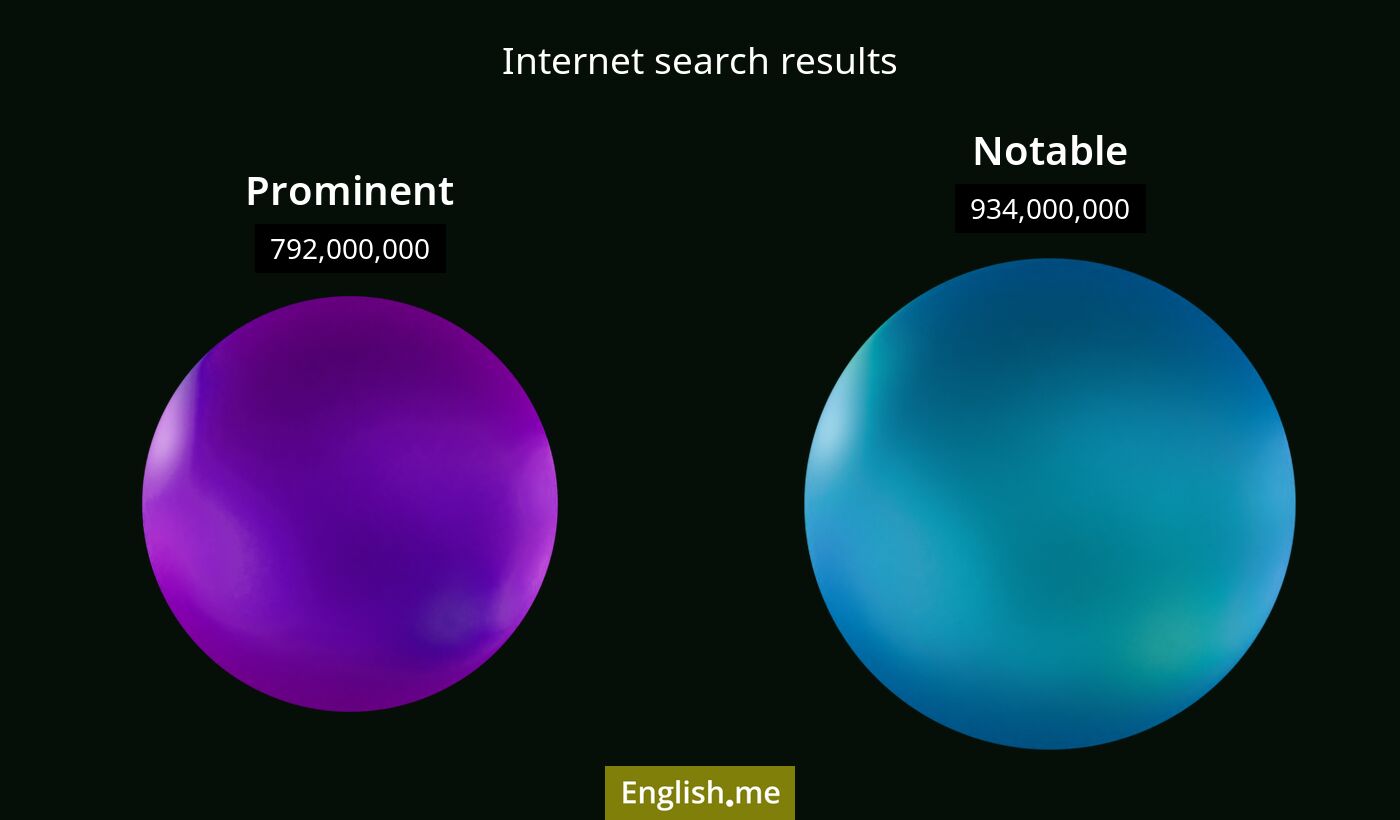"Prominent" vs. "notable": distinguishing the distinct
Reviewed and edited by  Lloyd Cooper 18/10/2024, 21:09
Lloyd Cooper 18/10/2024, 21:09
English.me team member

 What is similar?
What is similar?
Both "prominent" and "notable" describe something or someone that is easily noticeable or distinguished and that has significance or importance.
 What is different?
What is different?
The word "prominent" often implies standing out physically or being conspicuous in some way, and can refer to positions of high rank or influence. "Notable" more specifically refers to being worthy of attention or worthy of note, often due to achievements or significance.
 Which one is more common?
Which one is more common?

 Examples of usage
Examples of usage
Prominent- The prominent scientist was awarded the Nobel Prize.
- Her prominent position in the company made her opinion highly valued.
- The mountain's prominent peak could be seen from miles away.
- His contributions to the field were notable and well-documented.
- The book received a notable amount of critical acclaim.
- Several notable figures attended the gala event.

 English
English español
español française
française italiano
italiano deutsche
deutsche 日本語
日本語 polski
polski česky
česky svenska
svenska Türkçe
Türkçe Nederlands
Nederlands